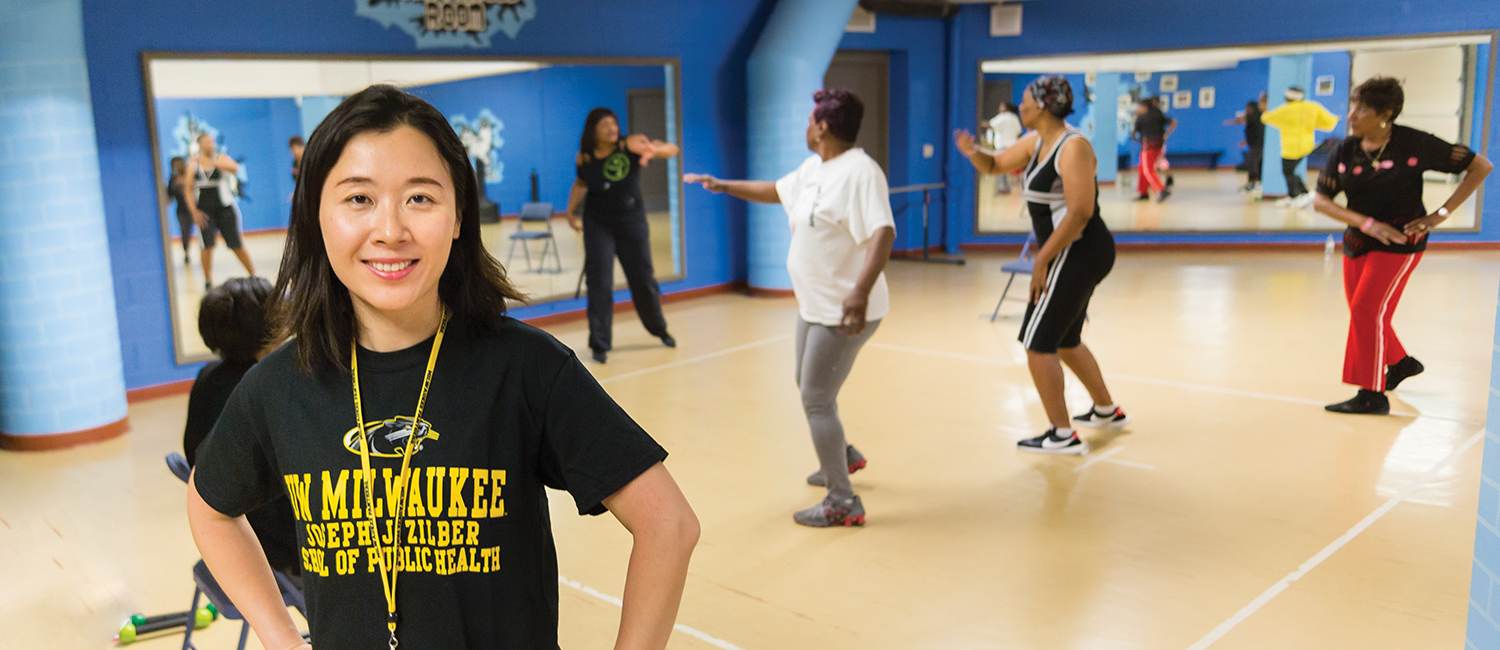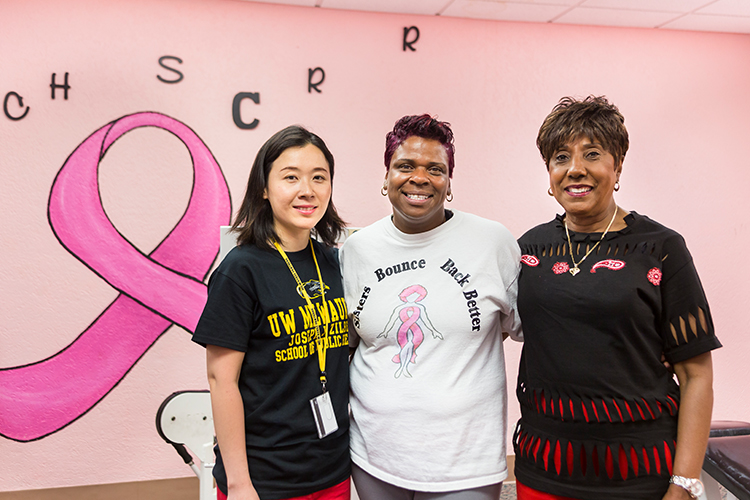
Helping African-Americans beat breast cancer
The statistics are stark. African-American women are only slightly less likely than white women to develop breast cancer. But if diagnosed, they’re 42 percent more likely to die from the disease, and their five-year relative survival rate remains lower than their white counterparts at 80 percent versus 91 percent.
“African-American women have a triple-whammy when it comes to breast cancer,” says Alice Yan, an associate professor of community and behavioral health promotion in UWM’s Zilber School of Public Health. “They are diagnosed at a younger age, have more aggressive types of cancer and higher death rates.”
Yan hopes to mitigate the toll by finding ways to encourage African-American breast cancer survivors to be more active. It’s a goal building from earlier research that’s shown how exercise, even brisk walking, improves the lives of breast cancer survivors.

Yan worked with the Black Health Coalition of Wisconsin to develop a group exercise program. The original four-week pilot program included 12 breast cancer survivors and then expanded to another 45 women. The project is part of a two-year study funded by the American Cancer Society and designed to reach underserved African-Americans.
Yan sought feedback from the women about what barriers might prevent them from regular exercise as well as factors that would increase their likelihood to participate regularly. “One thing we saw,” Yan says, “was how important it was that the programs be offered where the women live, work and socialize.”
With that in mind, classes were held at a neighborhood community center in Milwaukee, and the program added a layer of support by including lay health advisors, who are fellow survivors trained to be role models. The program also taught participants how to manage chronic conditions themselves.
She hopes it becomes a model for other programs that target underserved cancer survivors.
“I am proud to be a researcher that actually applies what I’ve learned from data into practice and makes tangible changes in people’s lives in real-world settings, one step at a time,” she says.